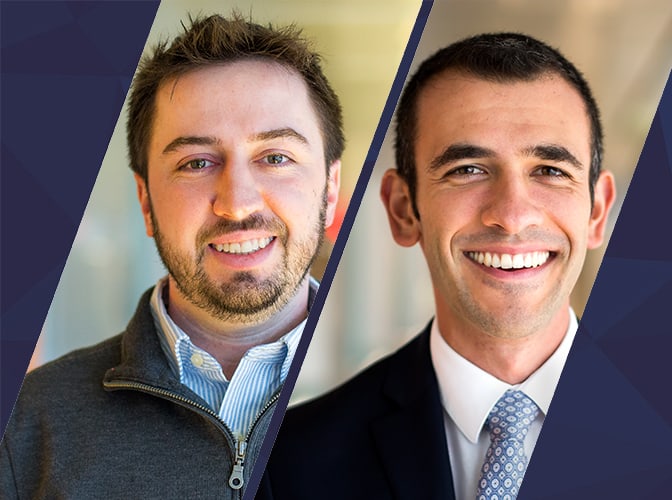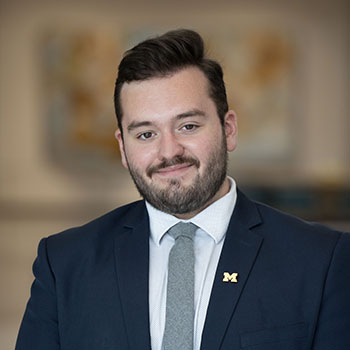
Two CEE professors receive NSF CAREER Awards
Assistant Professors Brian Ellis and Evgueni Filipov have each been selected to receive a 2020 National Science Foundation (NSF) CAREER Award.

Assistant Professors Brian Ellis and Evgueni Filipov have each been selected to receive a 2020 National Science Foundation (NSF) CAREER Award.
Two Civil and Environmental Engineering faculty members have each been selected to receive a 2020 National Science Foundation (NSF) CAREER Award. Assistant Professors Brian Ellis and Evgueni Filipov both received the honor. The CAREER Award is one of the most prestigious awards granted to early-career researchers by the NSF. The award is given to junior faculty who exemplify the role of teacher-scholars through research, education and the integration of education and research within the context of the mission of their organizations.

Brian Ellis’s project, “CAREER: Carbon Negative Subsurface Energy Technologies,” addresses CO2-based energy production and storage to open potential paths for decarbonizing the energy sector. The project will identify conditions and characteristics that favor sustainable CO2 storage in subsurface geologic reservoirs. The principal applications targeted are using CO2 for production of geothermal energy and large-scale storage of intermittent power generated from renewable energy resources. Interactions between CO2, water and rock will be examined to allow better prediction of the fate of injected CO2 in geologic reservoirs within the context of these emerging energy technologies.

Evgueni Filipov’s project, “CAREER: Large, Deployable and Adaptable Structures Through Origami Engineering,” will explore origami engineering to enable large-scale civil engineering structures that move and reconfigure efficiently, predictably and safely. This research will enable motion and reconfiguration of a civil structure with a minimal amount of force. The origami engineering principles will be used to generate traditional structures and architectures (e.g. beams, columns, surfaces), but with unique properties for reconfiguration and adaptability. These large-scale deployable and adaptable structures will result in fundamental improvements for construction methods, building operations, re-use of structures and adaptivity of infrastructure. The fundamental concepts will also allow innovations in space structures, robotics, biomedical devices, metamaterials and more. The project will actively engage high-school students in a low-income Detroit neighborhood, undergraduate researchers, graduate students and children of different age groups.

Marketing Communications Specialist
Department of Civil and Environmental Engineering